
Peter Urban Bruun Gad was a Danish film director, stage actor, screenwriter, and author. He directed 40 films between 1910 and 1927. His wife Asta Nielsen starred in 30 of his films, also in his début the film Afgrunden from 1910. They moved to Germany in 1911 where Gad worked with Paul Davidson until 1922.

Walter Ruttmann was a German cinematographer and film director, an important German abstract experimental film maker, along with Hans Richter, Viking Eggeling and Oskar Fischinger. He is best known for directing the semi-documentary 'city symphony' silent film, with orchestral score by Edmund Meisel, in 1927, Berlin: Symphony of a Metropolis. His audio montage Wochenende (Weekend) (1930) is considered a major contribution in the development of audio plays.
Carl Wilhelm, was a prolific German film director, film producer and screenwriter of the silent film era, at the end of which his career apparently entirely faded away and he vanished into obscurity.

Hedwig Courths-Mahler, née Ernestine Friederike Elisabeth Mahler was a German writer of formula fiction romantic novels. She used the pseudonyms Relham, H. Brand, Gonda Haack and Rose Bernd.

Werner Johannes Krauss was a German stage and film actor. Krauss dominated the German stage of the early 20th century. However, his participation in the antisemitic propaganda film Jud Süß and his collaboration with the Nazis made him a controversial figure.
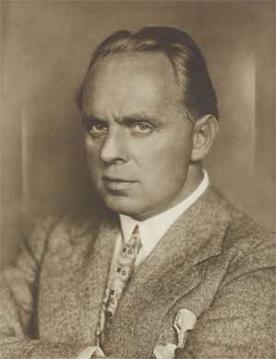
Friedrich Rudolf Klein, better known as Rudolf Klein-Rogge, was a German film actor, best known for playing sinister figures in films in the 1920s and 1930s as well as being a mainstay in director Fritz Lang's Weimar-era films. He is probably best known in popular culture, particularly to English-speaking audiences, for playing the archetypal mad scientist role of C. A. Rotwang in Lang's Metropolis and as the criminal genius Doctor Mabuse. Klein-Rogge also appeared in several important French films in the late 1920s and early 1930s.
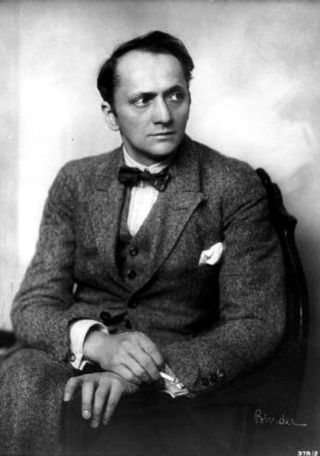
Theodor August Konrad Loos was a German actor.

Rosa Valetti was a German actress, cabaret performer, and singer.
Giuseppe Becce was an Italian-born film score composer who enriched the German cinema.
The Deutsches Filminstitut – DIF is an institute for the study of film, based in Frankfurt am Main, Germany.
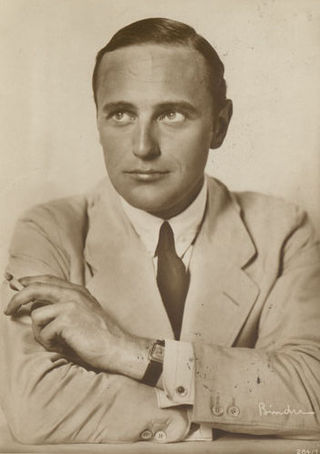
Harry Liedtke was a German film actor.
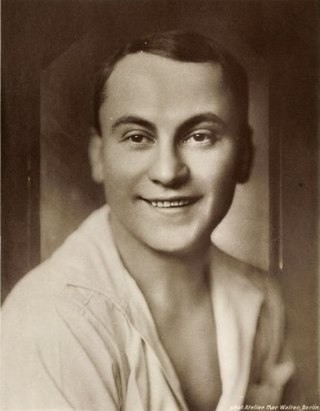
Kurt Vespermann was a German stage and film actor.

Frieda Ulricke "Henny" Porten was a German actress and film producer of the silent era, and Germany's first major film star. She appeared in more than 170 films between 1906 and 1955.
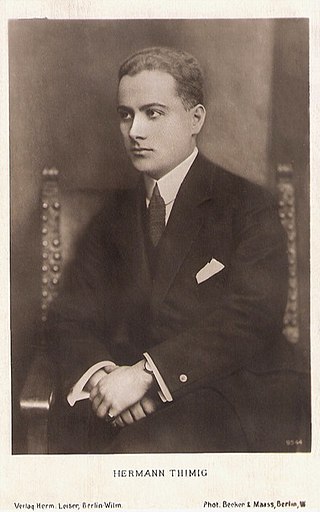
Hermann Thimig was an Austrian stage and film actor. He appeared in 102 films between 1916 and 1967.
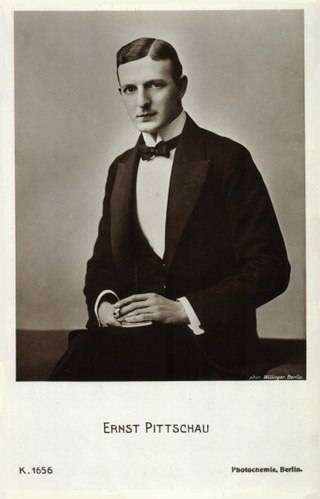
Ernst Pittschau was a German stage and film actor.
Emil Rameau was a German film and theatre actor, and for many years the deputy artistic director at the Schiller Theater. He appeared in nearly 100 films between 1915 and 1949.
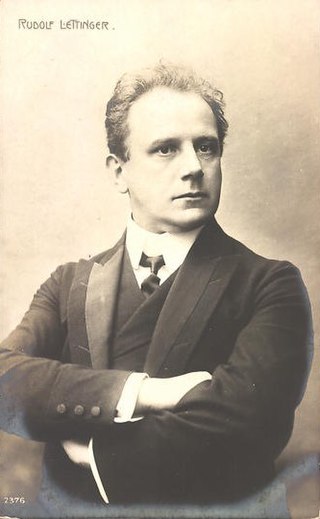
Rudolf Lettinger was a German stage and film actor. He made his stage debut in 1883 when he played the role of Kosinsky in Friedrich Schiller's drama The Robbers. Some of his more prominent roles in his prestigious stage career were Cyrano de Bergerac and Gessler in William Tell. He also worked with acclaimed stage director Max Reinhardt. In 1912, Lettinger played his first film role in Das Geheimnis von Monte Carlo. Lettinger appeared in over 90 films until 1931, mostly as a supporting actor. His best-known film is perhaps The Cabinet of Dr. Caligari (1920), where Lettinger portrayed Dr. Olsen.

Fritz Delius was a German film actor and theater artist. He played leading parts opposite Henny Porten and Fern Andra in several silent films. After the advent of talkies he shifted his focus to theater. When Adolf Hitler came to power and several restrictions began to be imposed on Jews, Delius emigrated to Switzerland where he continued his theater and film career.

Karl Ehmann was an Austrian stage and film actor whose career spanned both the silent and sound eras of the film industry.

Luise del Zopp, birth name Aloisia Theresia Johanna Luksch, also Louise Lingg, was a German actress, opera singer and screenwriter.
















